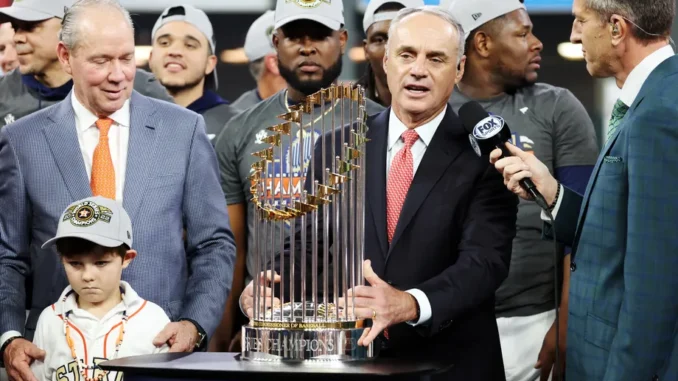
Major League Baseball is no stranger to controversy, especially when it comes to how the sport is governed. From scandals to labor disputes, the Commissioner’s role often becomes a lightning rod for criticism. But what if there were a better way to select the league’s most powerful figure—one that could ensure fairness, innovation, and even strategic benefits for teams like the Houston Astros? Let’s dive into a thought experiment that flips the traditional Commissioner selection process on its head.
The Current Process: A Flawed System
Currently, the MLB Commissioner is selected by team owners, making the position inherently tied to their interests. While this structure ensures that ownership has a say in the sport’s direction, it also limits the Commissioner’s ability to act independently or make decisions that serve the greater good of the game. Critics argue that this setup prioritizes profits over fans, innovation, and fairness.
A New Way Forward: The Rotational Commissioner
Imagine a system where the Commissioner isn’t a single person but a rotating position shared among representatives from key stakeholders: team executives, players, and yes, even fans. Every three years, the role would pass to a different representative body, ensuring a broader range of perspectives influences the sport’s direction.
For example, in Year 1, a team executive might serve as Commissioner. This could include a forward-thinking figure like Astros GM Dana Brown, who has a reputation for innovation. In Year 4, a player representative—say, someone like an experienced veteran—takes over, bringing a player-centric viewpoint to the league’s decisions. Finally, in Year 7, a fan-elected Commissioner would steer MLB priorities, addressing concerns like ticket prices, game length, and fan engagement.
How This Helps the Astros and MLB
For a team like the Astros, known for their analytical prowess and forward-thinking approach, a rotational system could be a game-changer. An executive Commissioner could push for expanded use of technology and analytics, areas where the Astros excel. A player Commissioner might advocate for improved conditions, benefiting teams with strong player development pipelines. A fan Commissioner could energize the sport’s base, drawing more attention to exciting teams like Houston.
A Fairer, Brighter Future
While unconventional, this rotational system could address many of the flaws in MLB’s governance. By diversifying who holds power, the league would foster innovation, fairness, and inclusivity—benefiting teams like the Astros while ensuring the game evolves to meet the demands of its players and fans alike. It’s a radical idea, but one worth considering for MLB’s future.
Leave a Reply